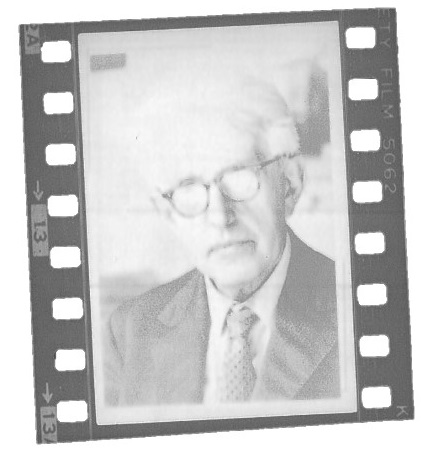Getting the best from the timeline
Move through entries in order, using the arrows at the right of each entry. If the full text of an entry is not visible, use the scroll bar (at the right hand side). You can also use the timeline (above the main entry) to move to a different point in time and select a particular entry to examine. Drag it to the left or right. Magnifying glass tools (at left) allow you to zoom in on a passage of time. The back arrow will take you back to the opening slide. (Use the arrow at the left of the main entry to view the immediately preceding one.)
Entries are currently organised into six sub-collections, displayed as lines in the timeline navigation:
Milestone: anchor points in H.W. Cassirer's life
Relocation: when H.W. Cassirer moved to live in a different place
Warburg: information from the Warburg Institute Archive and/or relating to key figures in its networks
Law: changes in law affected the course of Cassirer's life; the contents include anti-Jewish laws created by the National Socialist regime in Germany and other countries, as well as legislation affecting foreigners in wartime Britain
Media: reports in newspapers, magazines, and academic journals
SPSL: other material from the archives of the Society for the Preservation of Science and Learning
Biblical: entries referring to Cassirer's biblical scholarship, beginning with his reading of Paul's New Testament letters.
Bibliography and further reading:
A full list of Heinrich Walter Cassirer's works is available on this website, with links to those available digitally.
His second doctoral thesis (Glasgow, 1938) is held at the University of Glasgow. The University also maintains records of its past students and staff as "The University of Glasgow Story".
Documents from the archives of the Society for the Preservation of Science and Learning (held by the Bodleian Library) were consulted including files for H.W. Cassirer, Ernst Cassirer, and Raymond Klibansky. Excerpts from these are reproduced within the timeline above by kind permission of Cara (the Council for At-Risk Academics).
The Times Digital Archive covers all of this period and was especially relevant in exploring public reaction to the 1940 internments.
Testimony
Several people in Heinrich Walter Cassirer's life were later led to reflect on events involving him. Most importantly, in 1938 and again in 1954, he wrote reflexive prefaces to his commentaries on Kant's work and the circumstances in which they were produced. These appear within the relevant works (and in full on this site). Other key sources of testimony are:
His mother, Toni Cassirer, who mentions her eldest son and his family frequently in her memoirs, Mein Leben mit Ernst Cassirer (My Life with Ernst Cassirer). The memoirs were written for circulation within the family, and only latterly published for the general public.
His friend from youth, Raymond Klibansky, was led to reflect on their friendship and its consequences in a series of interviews with G. LeRoux, published in 1998.
Beatrix Walsh, wife of his colleague (and friend) W. H. Walsh, drew on Heinz's stories as well as her own memories in painting a picture of Oxford's Jewish refugees and their experiences pre- and during World War Two. These were published in the Oxford Magazine in December 1992, alongside a shorter reflection from Donald MacKinnon, who also knew HWC in Oxford.
Secondary Literature
Shula Marks, Paul Weindling & Laura Wintour (eds.) (2011) In Defence of Learning: The Plight, Persecution and Placement of Academic Refugees, 1933—1980s. Oxford University Press for the British Academy.
Sally Crawford, Katharina Ulmschneider and Jaś Elsner (eds.) (2017) Ark of Civilization: Refugee Scholars and Oxford University, 1930-1945. Oxford University Press. In which see especially:
Sally Crawford & Katharina Ulmschneider, “'The Bund' and the Oxford Philological Society, 1939-45”, pp. 133-150
Philip Davies, “Out of the Archives: Oxford, the SPSL, and the Literae Humaniores Refugee Scholars”, pp. 77-95.
Harold Mytum, “Networks of Association: The Social and Intellectual Lives of Academics in Manx Internment Camps during the Second World War”, pp. 96-116.
Graham Whitaker, “Philosophy in Exile: The Contrasting Experiences of Ernst Cassirer and Raymond Klibansky in Oxford”, pp. 341-358.
Philippe Despoix and Gill Tomm (eds.) (2018) Raymond Klibansky and the Warburg Library Network: Intellectual peregrinations from Hamburg to London and Montreal. Mcgill-Queen's University Press.
Sigrid Bauschinger (2015) Die Cassirers: Unternehmer, Kunsthandler, Philosophen. Munich: C. H. Beck.
Steven P. Remy (2002) The Heidelberg Myth: The Nazification and Denazification of a German University. Harvard University Press.
David Zimmerman (2006) “The Society for the Protection of Science and Learning and the politicization of British Science in the 1930s”. Minerva 44.1, pp.25-45.
Dorothea McEwan (2012) Fritz Saxl, Eine Biografie: Aby Warburgs Bibliothekar und erster Direktor des Londoner Warburg Institutes. Vienna: Böhlau Verlag.
Graham Whitaker (2005) “A moment in time: from the digital record of a migrating library.” In, Kilton, T.D. and Birkhead, C., Eds. Migrations in Society, Culture, and the Library: WESS European Conference, 22-26 March 2004, pp. 216-232, Paris, France.
Other Archival Records (not consulted)
Known to hold relevant records:
The National Archives. Internment and Naturalization papers. File closed until 2047.
Warburg Institute Archive. General Correspondence. One item in 1933; post-1933 in paper catalogue only.
Bodleian Library: Minute book of the Oxford Philological Society, 1927-1951. (Dep. d. 993)
Heidelberg University archives. (Student records.)
Hamburg University archives. (Student records.)
The Beinecke Library, Yale. (Papers of Ernst Cassirer.)
Likely to hold relevant records
World Jewish Relief archives. (Digitised in partnership with London Metropolitan Archives.) Central British Fund for German Jewry: Jewish Professional Committee.
Scottish Jewish Archive Centre: Jewish Board of Guardians, and the Board of Jewish Education.
University of Glasgow archives. e.g. Minutes of Senate Meetings, 1934-1938.
Corpus Christi College, Oxford, archives.
